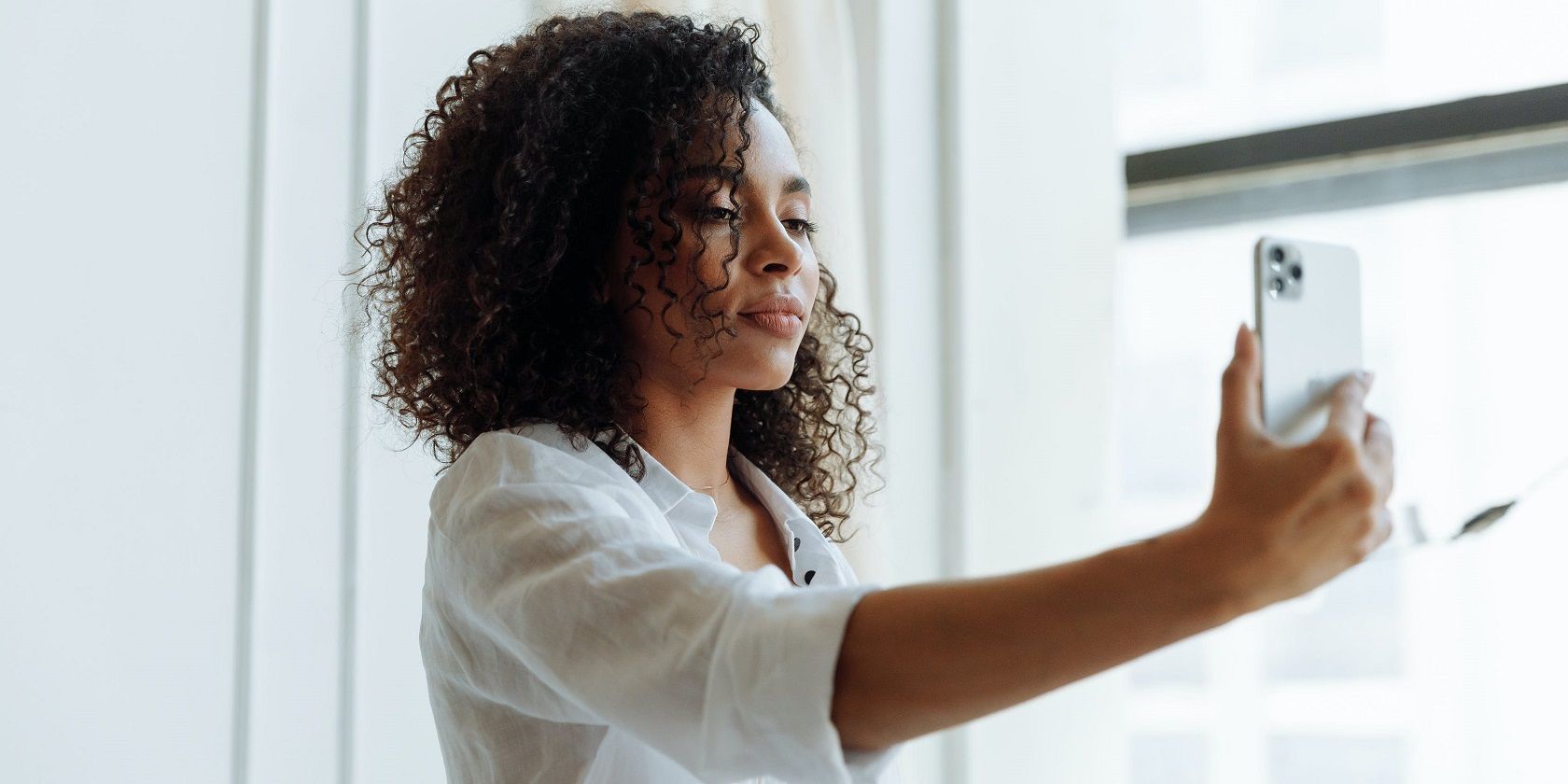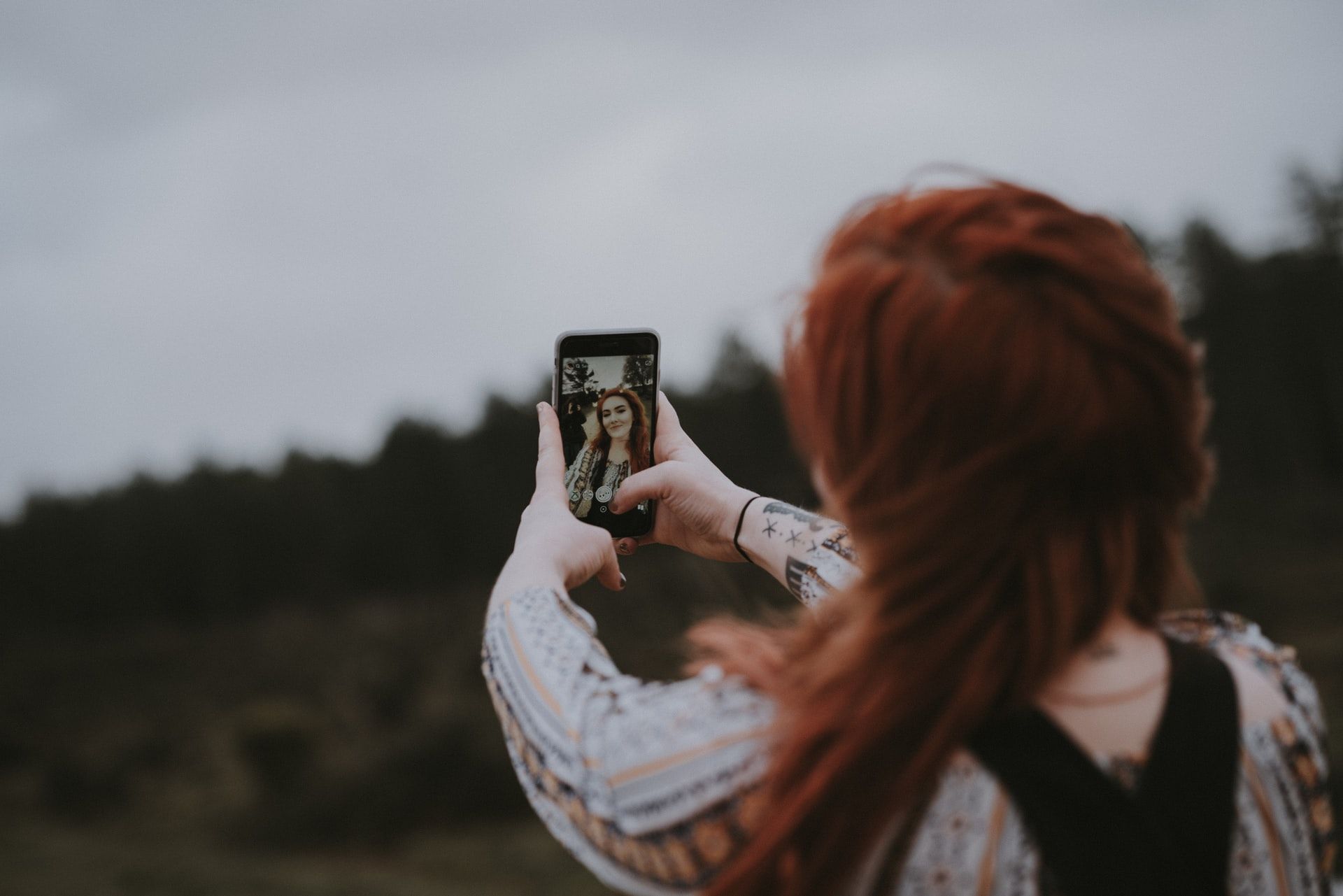Ever wondered how influencers' selfies always look so perfect? That's because it's edited! Whenever you end up with a collection of shots and still can't seem to find one that's worthy of posting, you can fix this dilemma with editing.
We're going to discuss the reasons you should edit your selfies, touch on the ethicality of altering the way you look, and give you some tips on how to edit a selfie.
Why You Should Edit Your Selfies
The perfect shot doesn't exist—even professional photographers need to edit their work. There are several reasons why editing any photo is important.
Color Correction
Color correction is probably one of the most essential editing steps. It's the process of altering lighting and coloring so that an image looks as natural to the human eye as possible.
Skipping this step means that additional color grading, filters, and effects won't look the way they're intended to.
Get the Aesthetic You Want
Speaking of filters and effects, these allow you to set the aesthetic for your shot. Whether that means making a subtle change in coloring to get a moody vibe, or going all out with a bunch of effects to achieve a specific style.
Fix Any Mistakes
Another benefit that editing provides is the ability to edit out mishaps and imperfections. A photobomber that ruined your favorite shot? Crop it out. A new pimple that you didn't realize you had? Use an editor with a spot-corrector.
Highlight Your Brand
The way you edit your selfies helps your followers identify your brand. This doesn't mean you need to put pressure on yourself to find a unique editing style (unless you're a creative with a specific aesthetic goal)—it's more about consistency.
Visualize the layout of your selfie posts on the platform you intend to post them on, and ask yourself if the visual appeal of it all makes sense.
How Much Editing Is Too Much?
Our access to apps with extensive editing features does pose an ethical issue. Is it okay to present yourself to the world as someone with flawless skin and pearly white teeth when that's not how most of us look in reality? Some apps even allow you to change the shape of your face and body, making you look like a completely different person.
It's up to you how much you want to alter your appearance in editing, but it's good to be mindful of the unobtainable standard that we might perpetuate.
How to Edit Your Selfies
Let's jump right into the things you should pay attention to when editing your selfies.
1. Make Basic Adjustments
You don't need a third-party app to make basic adjustments, as most smartphones come with a photo app that has all the essential editing features. Even social media platforms offer these settings before posting a picture. It includes things like brightness, contrast, hues, and saturation.
Start with the settings that affect the lighting of the photo; look for things like Exposure, Brightness, and Opacity. Shadows are tied to lighting conditions, so alter Contrast, Brilliance, Highlights, and Black Point to control the depth and dimension.
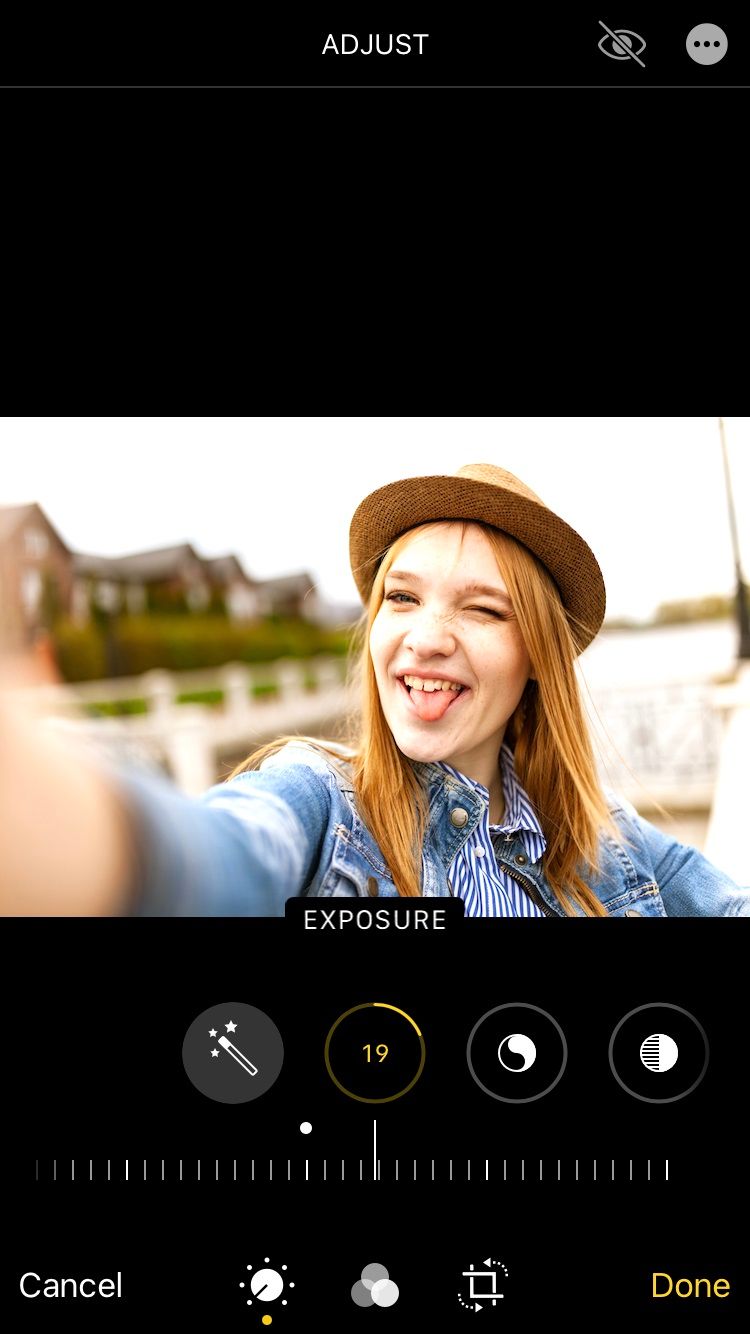
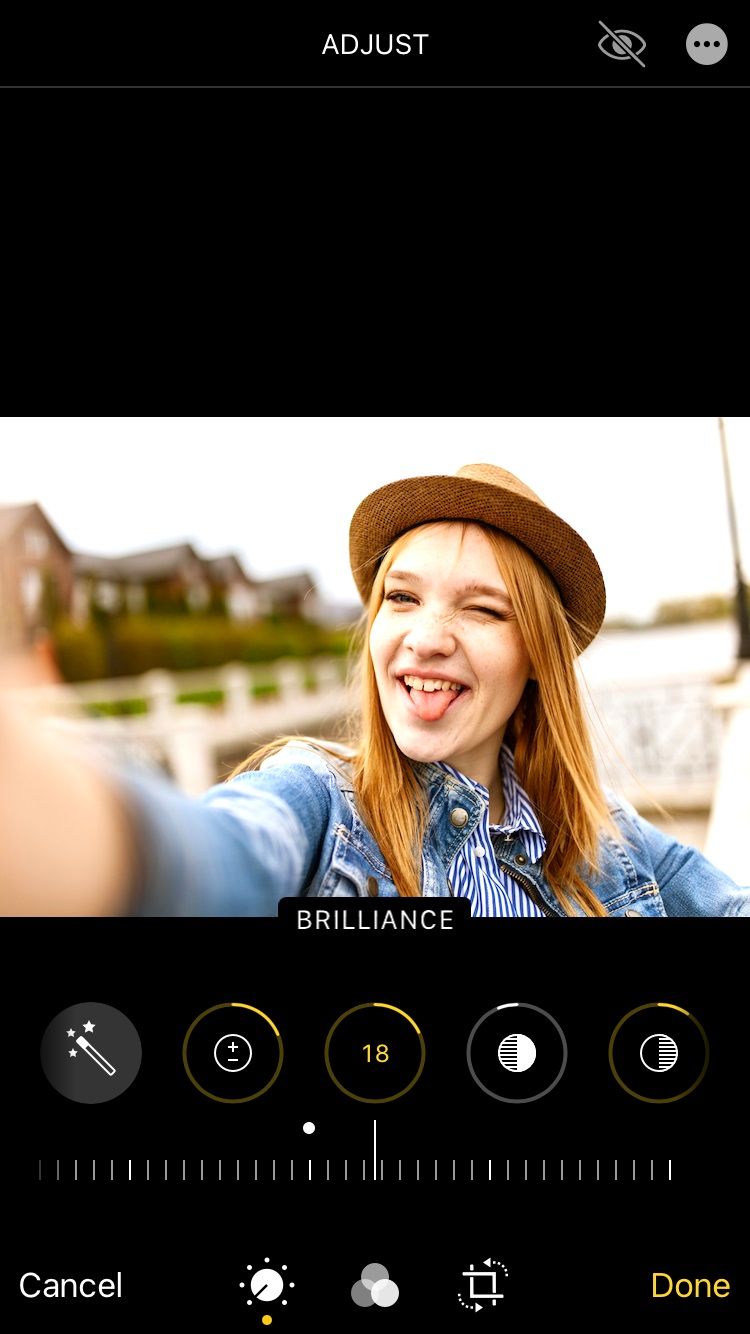
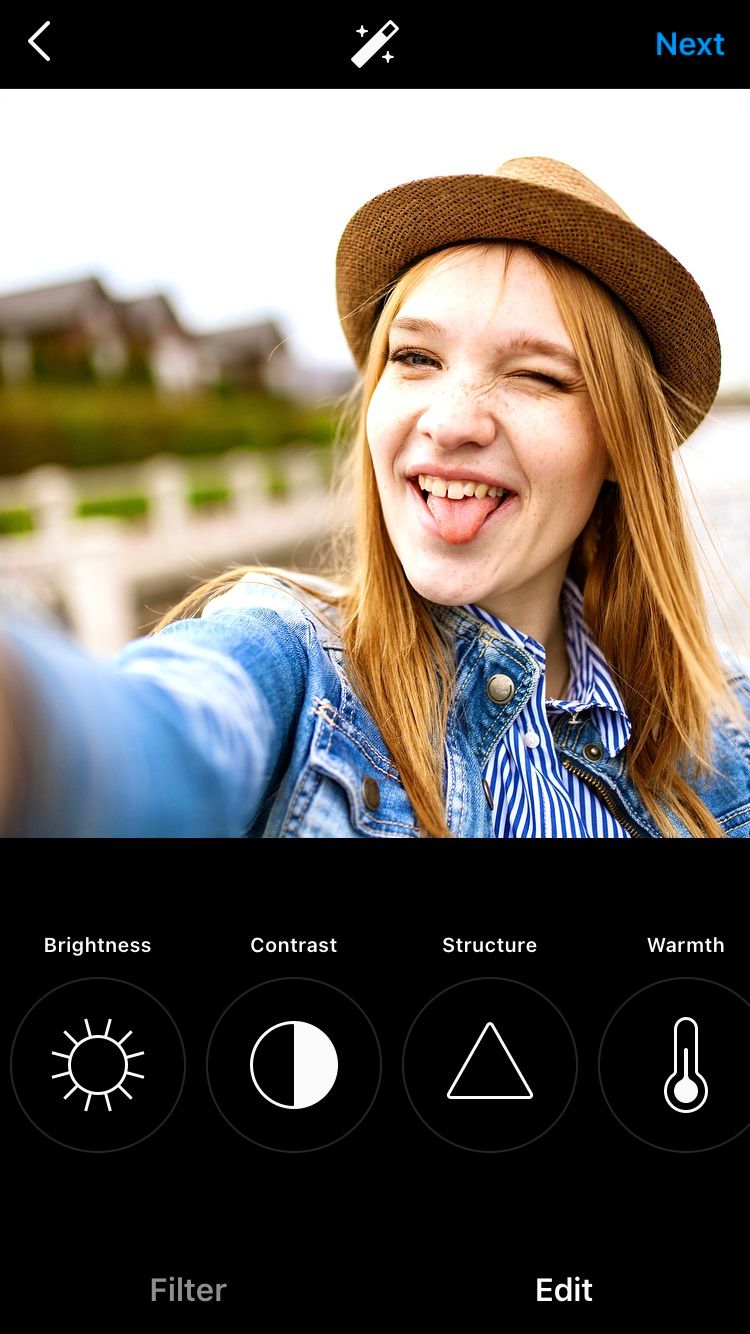
Now, move on to color editing. Saturation, Vibrance, Warmth, Tints, and Hue will determine the coloring. Remember to achieve a natural coloring before you perform creative color grading.
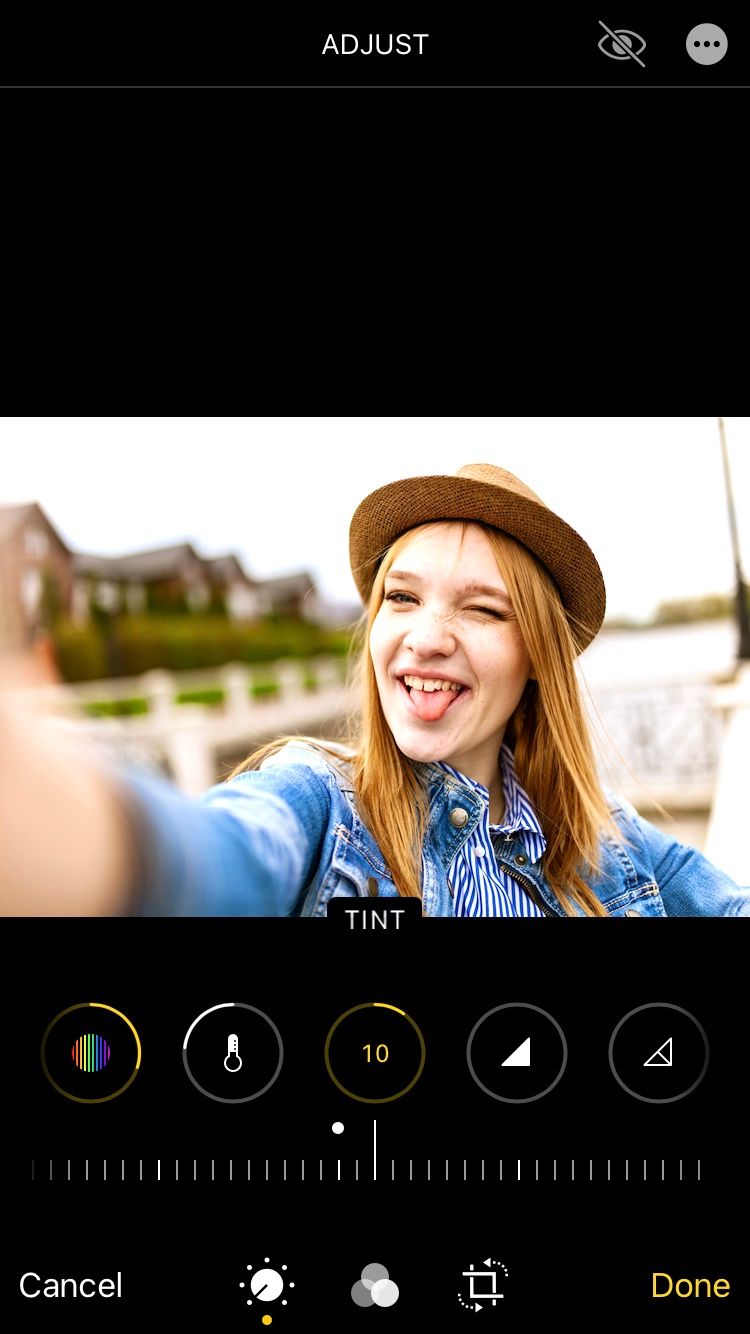
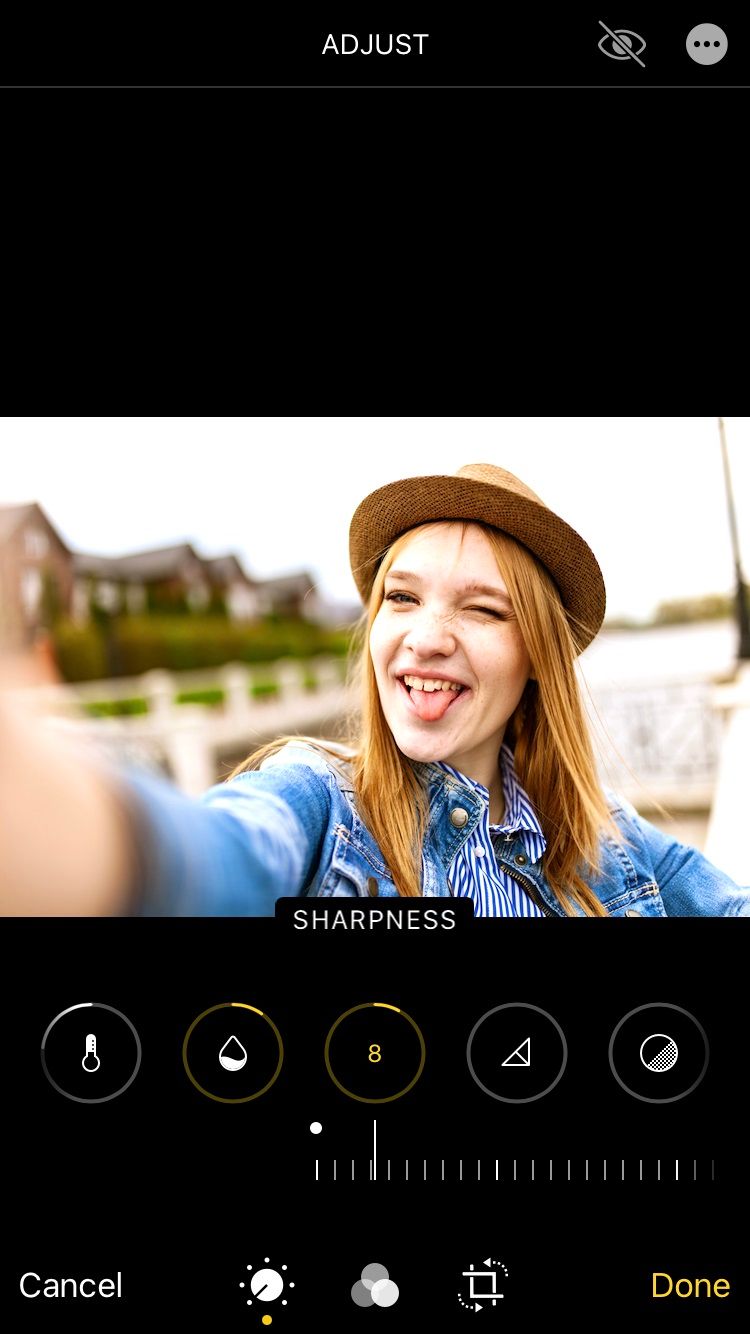
Lastly, there are usually miscellaneous features, such as Sharpness, Noise, and Vignette. Increasing the sharpness slightly can give the illusion of a higher definition photo, but use these effects sparingly in your first edit. This way, you can stick to the rule of neutrality before continuing with your own editing style.
2. Use Automated Settings
If you don't trust your ability to make manual adjustments, look for an automated editing feature.
For example, on the iOS Photos app, it's called Auto, and on Instagram, it's called Lux. These features scan the photo and let an AI determine the optimal settings for the specific conditions of that photo.
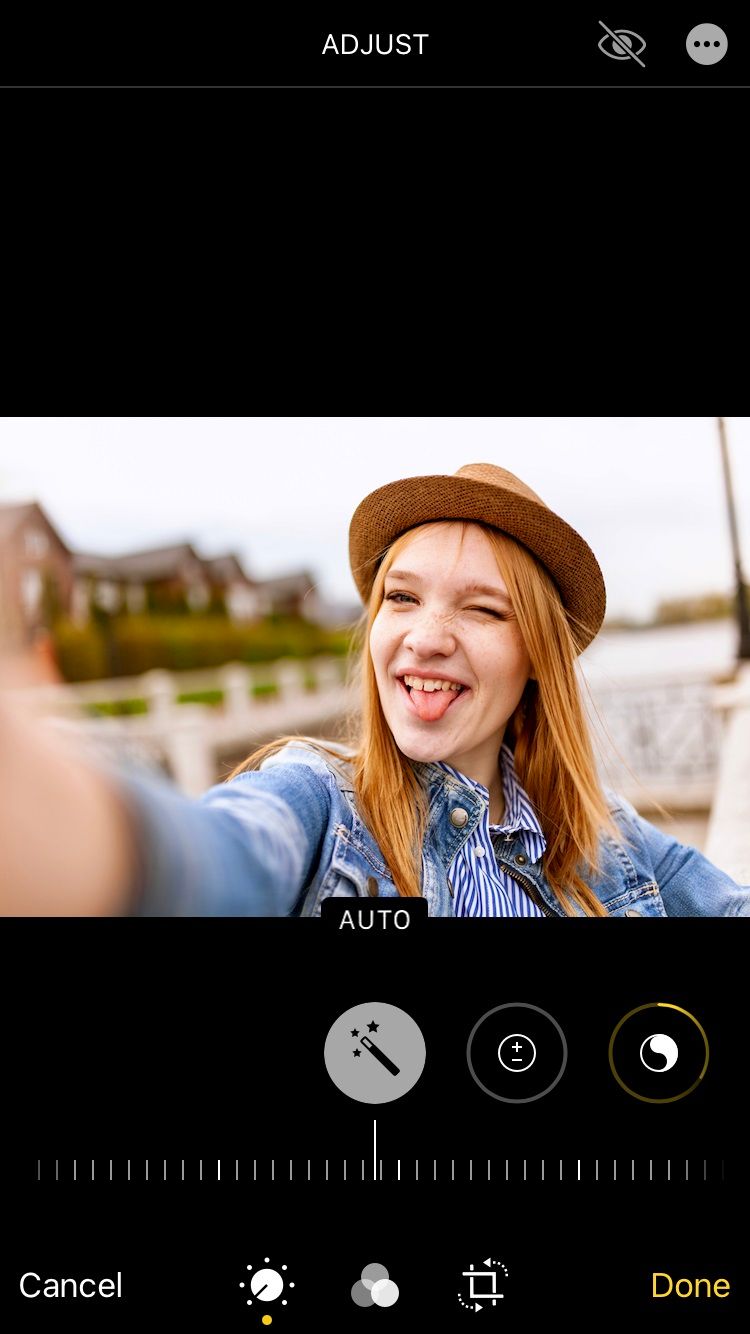
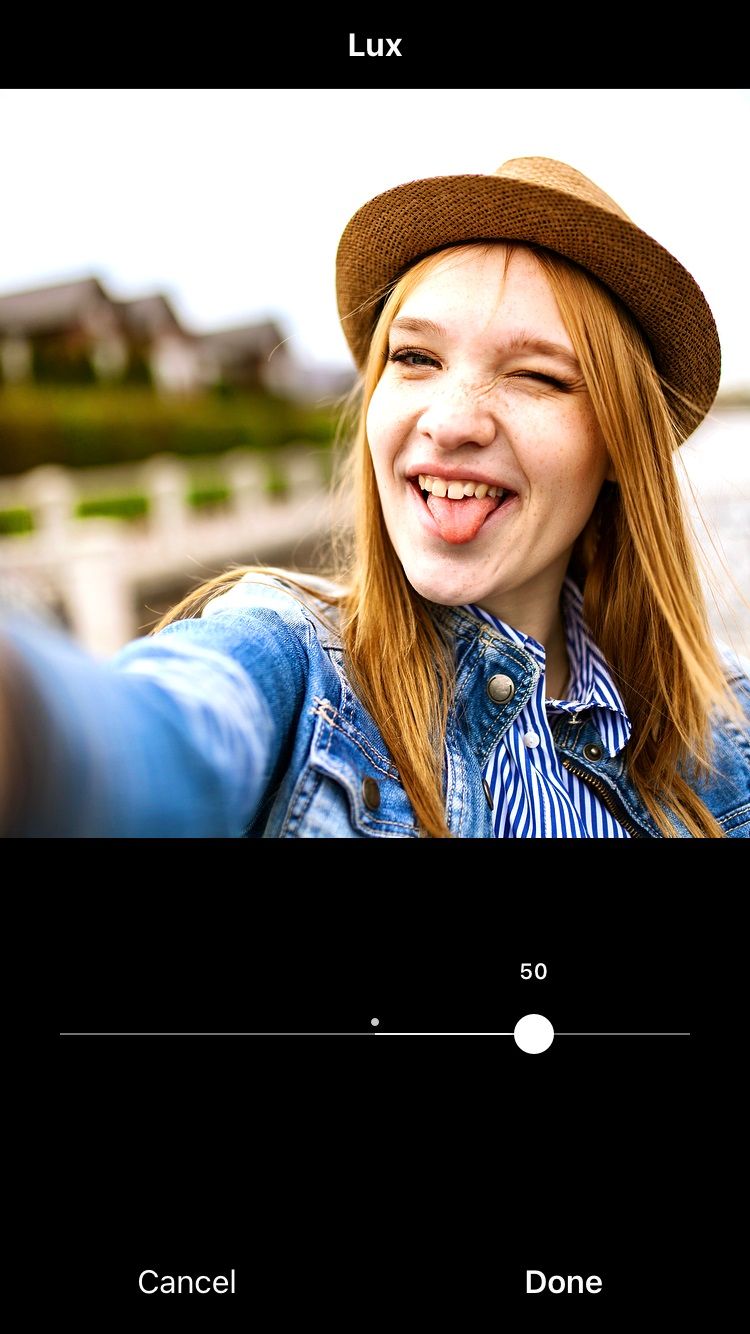
3. Crop It
Cropping isn't necessary for every photo, but you'll often need to make your photo a specific size in order to post it on social media platforms. So if you've taken a selfie in the standard 9:16 format, you'll need to crop it to 8:10 or 1:1 if you intend to post it to Instagram.
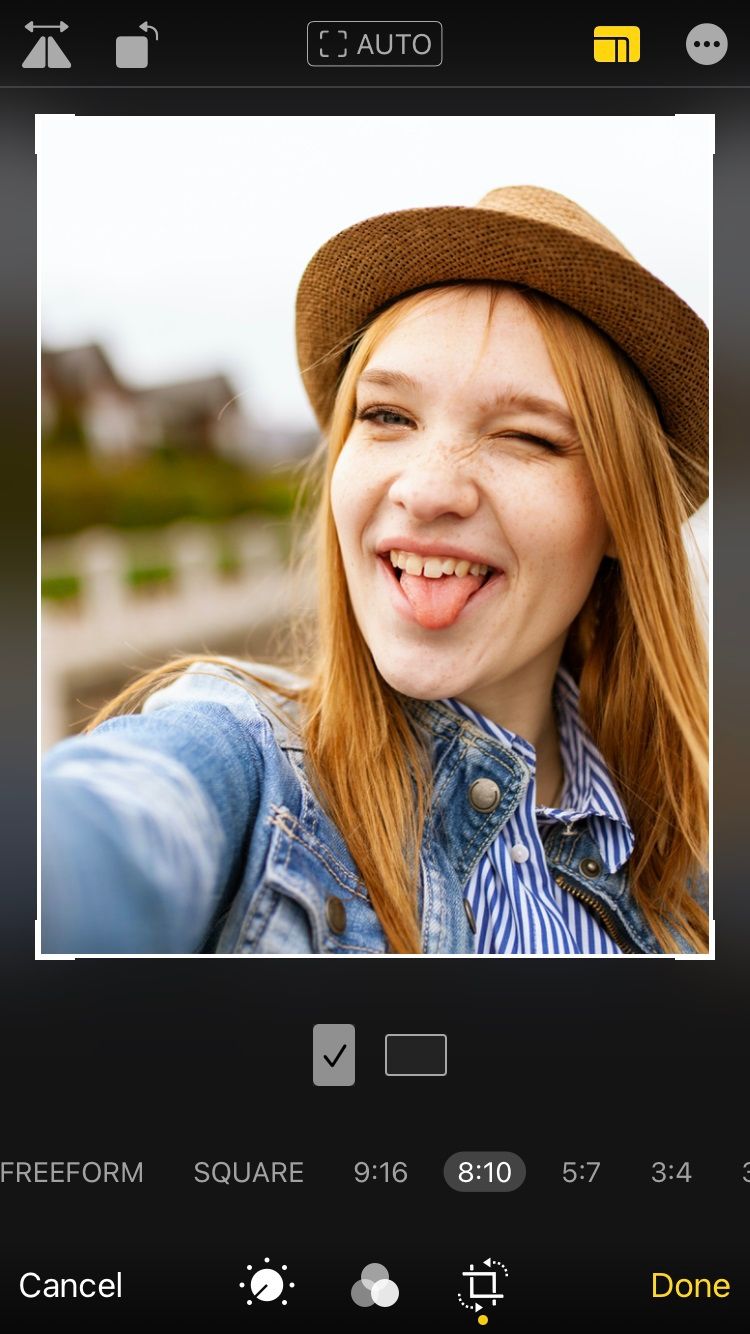
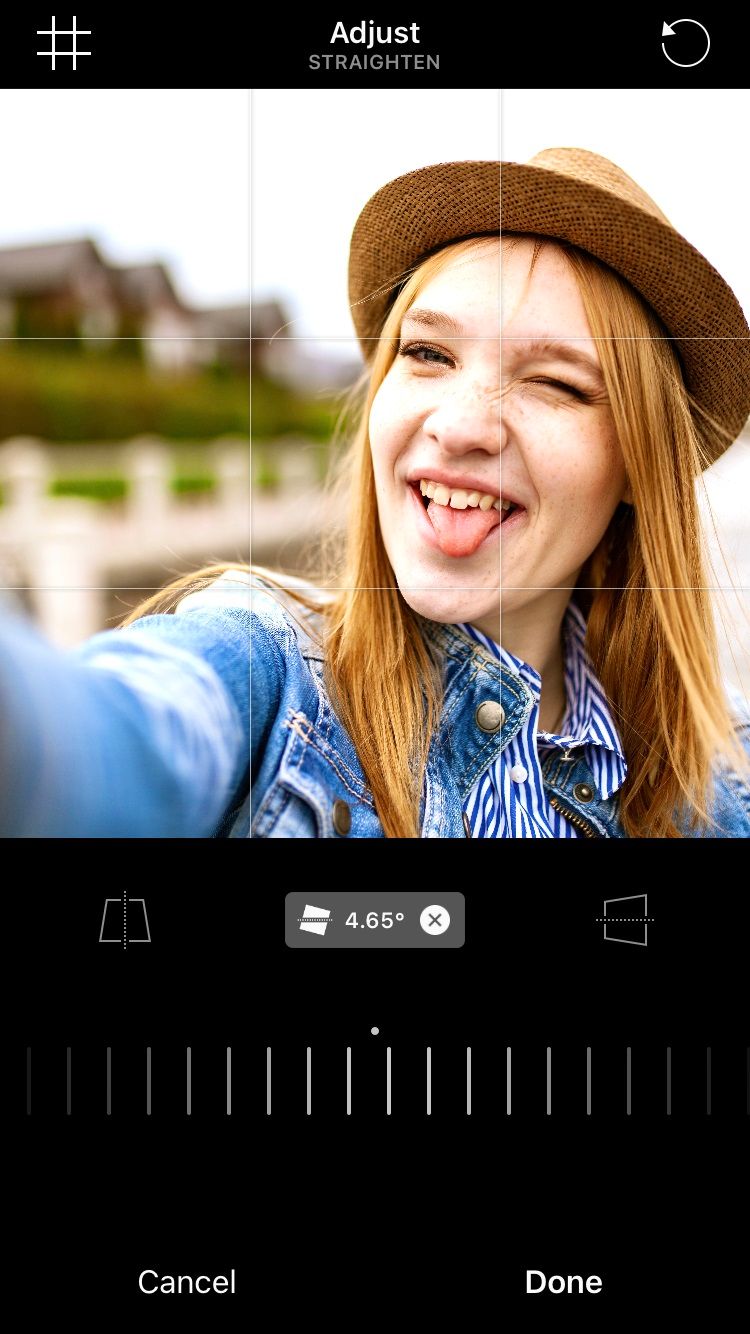
The crop tool is useful for getting rid of unwanted elements in the composition, given it doesn't overlap with the main subject. You'll typically also find Zoom, Tilt, Rotate, and Flip options alongside the crop tool, which can help emphasize certain angles.
4. Select a Filter
If you're happy with the results after making some simple adjustments, you may want to add a filter. Keep in mind that you don't necessarily need to use a filter, but they do help spice up a photo.
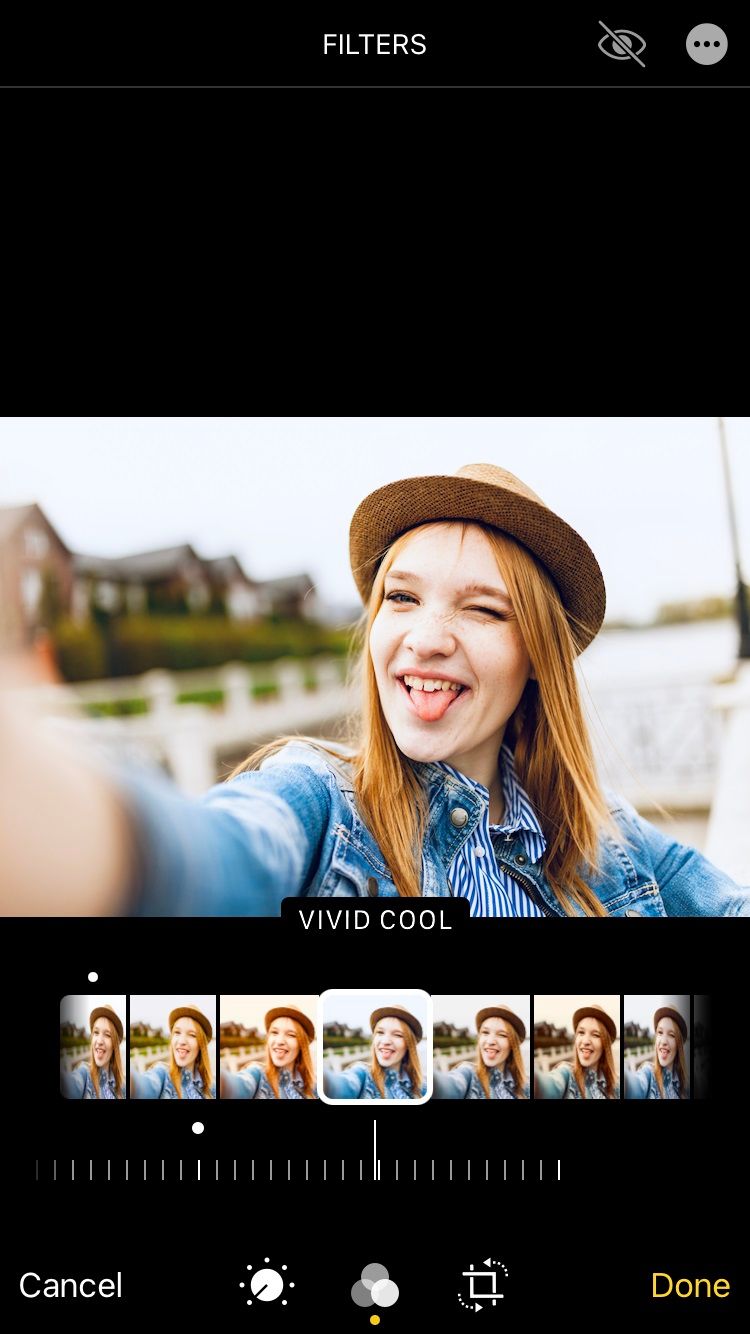
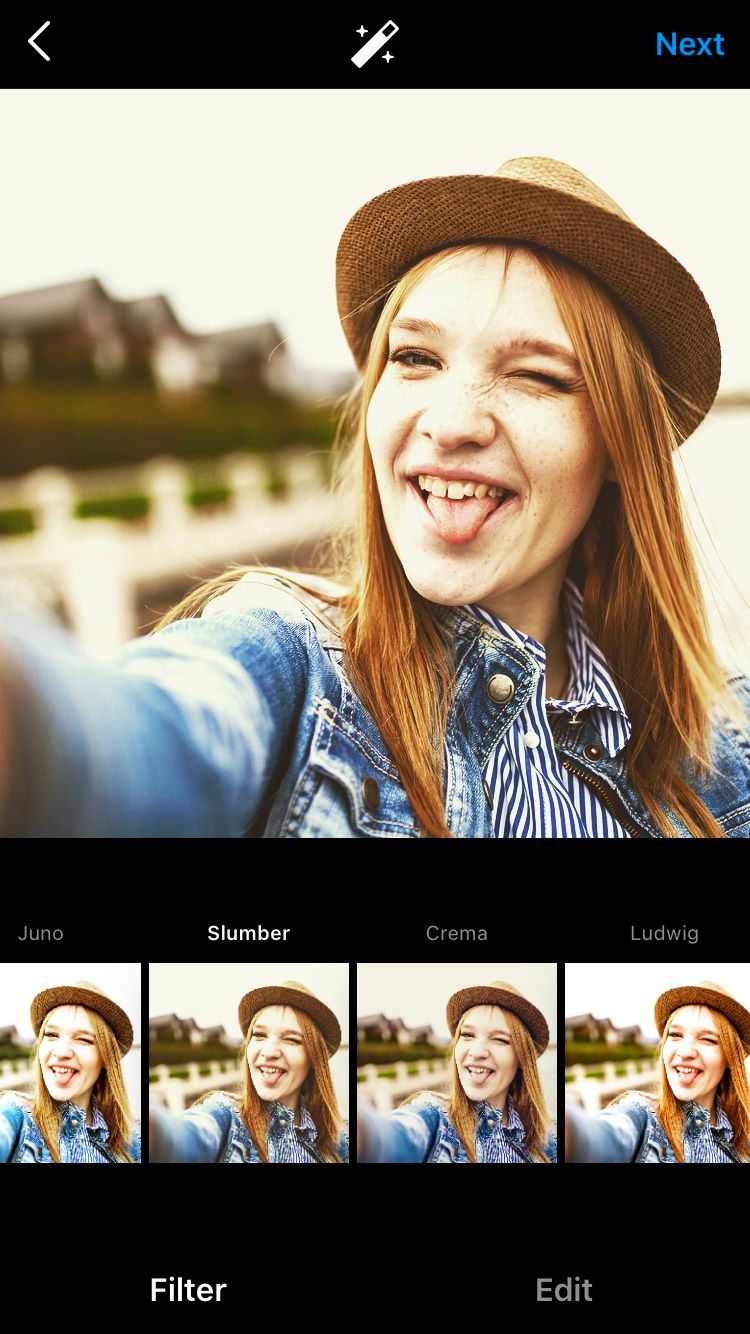
Look through the preset filters in your phone's default photo app or in the social media app you're posting to, and play around with their intensity. You'll most likely stumble across one that compliments your selfies and style.
5. Use a Beautifying App
There are many free apps that offer more advanced editing features, like skin smoothing, blemish removal, and teeth whitening. Some will let you take a photo while applying the retouch settings in real-time, similar to an Instagram Stories filter.
Our favorites are BeautyPlus for Android and iOS, as well as Adobe Photoshop Fix for Android.
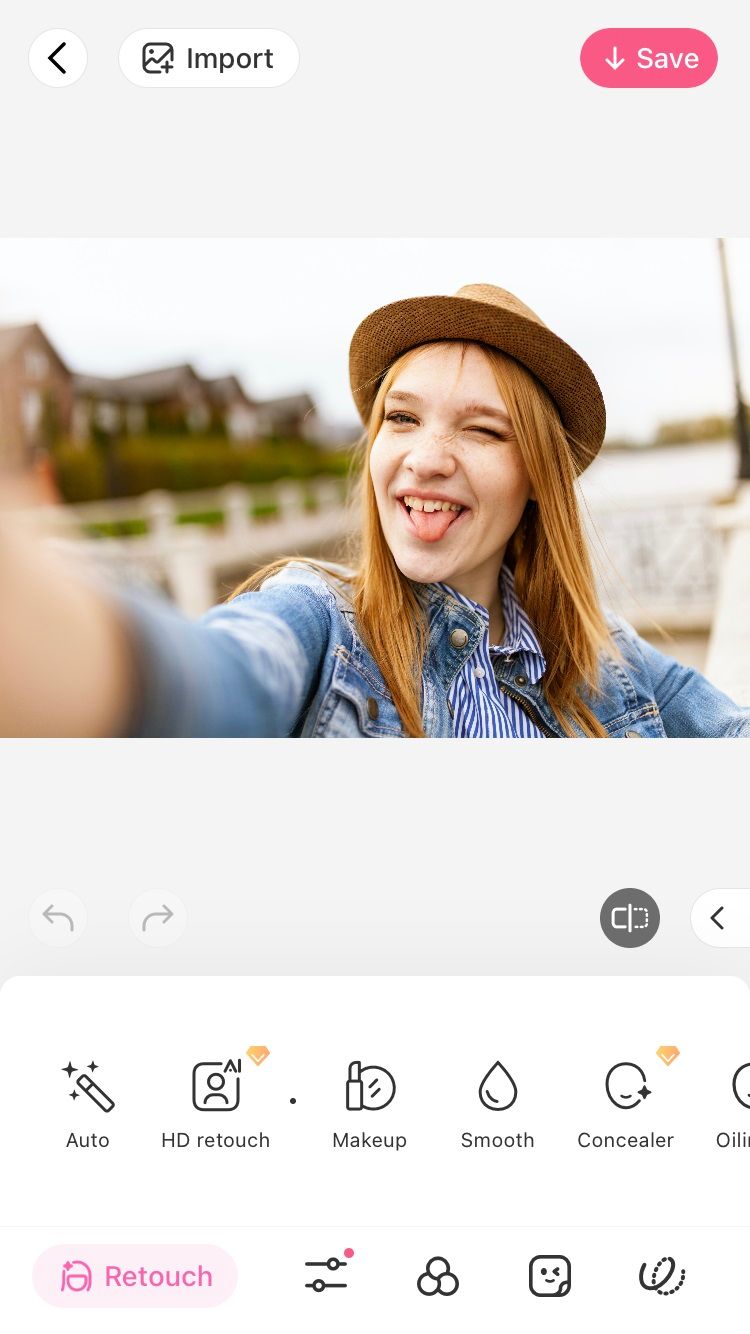
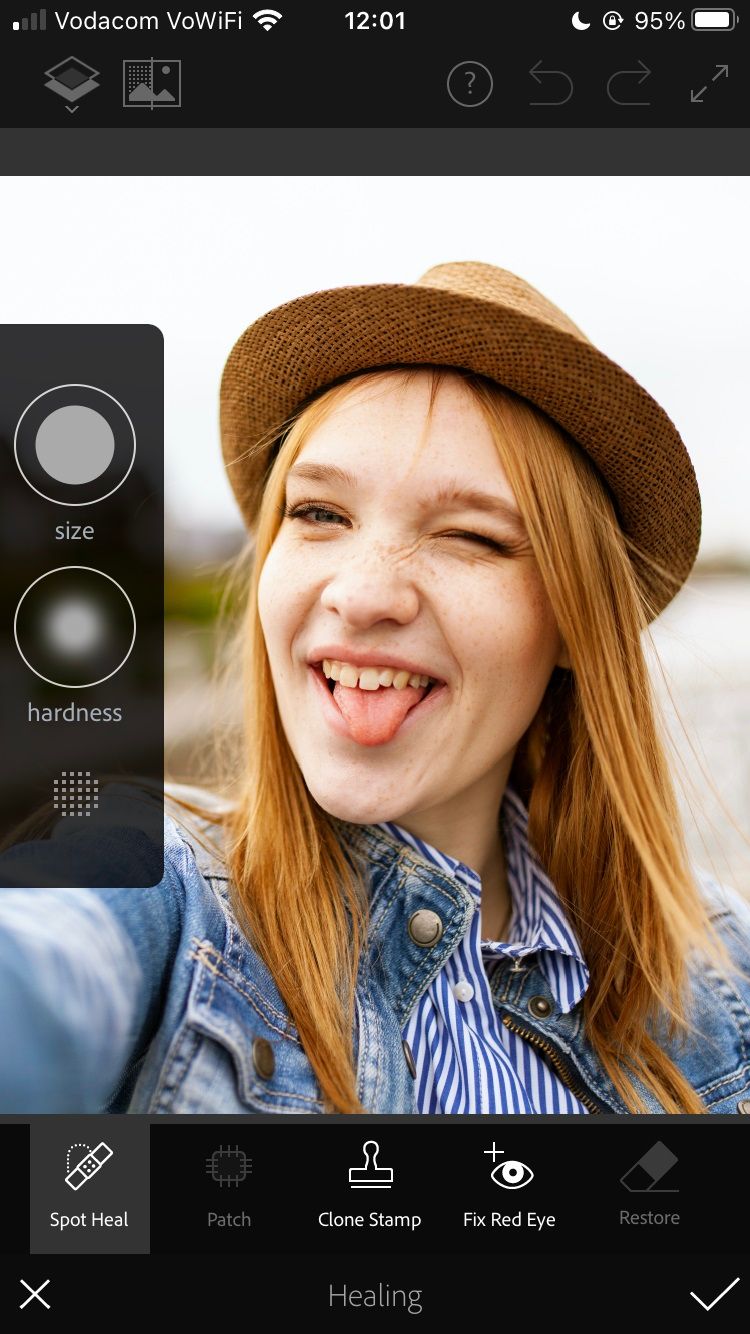
6. Don't Go Overboard
The pressure to look like a perfect doll is ever-present on social media, so going overboard with a beautifying app may be tempting—try not to fall into this trap.
Once you post an over-edited selfie, you'll most likely feel pressured to keep up that appearance. This can lead to low self-esteem when seeing a picture of what you really look like.
Patching up a few blemishes isn't as drastic as changing the shape of your face. Try to only alter the things that can be altered in real life, such as removing a pimple. You might feel hesitant to post your natural self online at first. But over time, it will only build up your confidence, which will probably result in better selfies!
7. Get Creative
Nothing is stopping you from making creative edits on your selfies. Want to look punk rock? Add some skulls and chain stickers. You can even try using a snow filter for a softer style. Your options are endless, and if you're at a loss for ideas, check out these aesthetic ideas for your pictures.
Our favorite app for artistic editing is PicsArt for Android and iOS—it's easy to use and most of the features and effects are free.
Edit Your Selfies With These Methods and Tips
Even if you're a pro at taking selfies, don't expect to be completely satisfied with a photo before editing it. These tips can transform your selfies and help you achieve the look you want.

